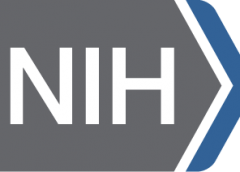
Moving promising research findings out of the laboratory and into clinical practice is the focus of four new Centers of Research Translation (CORTs) funded by the National Institute of Arthritis and Musculoskeletal and Skin Diseases (NIAMS), a part of the National Institutes of Health. The Centers encompass a multidisciplinary approach to one disease targeted theme within the NIAMS mission. A minimum of three projects, with at least one basic and one clinical project as well as an administrative core, form the basic elements of the CORT.
"The concept of the CORT is two-way," said NIAMS Director Stephen I. Katz, M.D., Ph.D. “The Centers embrace both the translation of scientific discoveries toward clinical application, and clinical findings back to new research.” The new CORTs focus on muscular dystrophy, Sjögren’s syndrome, osteoarthritis and systemic sclerosis.
The four new Centers are:
Center for Research Translation of Systemic Exon-skipping in Muscular Dystrophy headed by Eric P. Hoffman, Ph.D., at the Children’s Research Institute in Washington, D.C. This CORT will focus on a novel treatment approach for muscular dystrophy, a group of diseases characterized by progressive muscle weakness and degeneration. In Duchenne muscular dystrophy, a genetic mutation results in an absence of the muscle protein dystrophin. In an effort to repair the genetic defect in people with the disease, the team will use exon-skipping drugs, which are small molecules that can trigger dystrophin production from the mutant genes. Investigators also plan to implement a natural history study of Becker’s muscular dystrophy, a form of muscular dystrophy caused by an insufficient production of dystrophin.
Oklahoma Sjögren’s Syndrome Center of Research Translation led by Kathy L. Moser, Ph.D., at the Oklahoma Medical Research Foundation in Oklahoma City. Sjögren’s syndrome is an autoimmune disease, in which the body turns against its own cells. In the case of Sjögren’s syndrome, the glands that produce tears and saliva are primarily affected. This CORT will employ a combination of clinical, scientific and administrative resources to more fully understand the genetic and environmental factors that cause the disease, with the goal of creating novel diagnostic and therapeutic approaches.
Center for Translation of Quantitative Imaging in Osteoarthritis led by Nancy E. Lane, M.D., at the University of California, Davis, and Sharmila Majumdar, Ph.D., at the University of California, San Francisco. The goal of this CORT is to employ cutting-edge imaging strategies to enhance disease management and outcomes in people with osteoarthritis, a common degenerative joint disease. The interdisciplinary team will integrate various measures of joint health, including imaging technologies, biomarkers, biomechanics and patient function. The linkages found will ultimately be translated into widely available clinical tools that directly impact osteoarthritis research, diagnosis, management and care.
Center for Pathogenic Mechanisms in Systemic Sclerosis headed by Robert A. Lafyatis, M.D., at the Boston University School of Medicine. This CORT aims to accelerate the understanding of systemic sclerosis, a disease characterized by the abnormal growth of connective tissue, which supports the skin and internal organs. The disease varies in its presentation and progression, and clinical biomarkers are not able to predict which patients will develop serious complications of their vital organs. Investigators will focus on identifying the biomarkers of the progression and complications associated with the disease, setting the stage for more targeted therapies for at-risk individuals.
Read more information on the NIAMS Centers of Research Translation.
The mission of the National Institute of Arthritis and Musculoskeletal and Skin Diseases (NIAMS), a part of the U.S. Department of Health and Human Services’ National Institutes of Health (NIH), is to support research into the causes, treatment, and prevention of arthritis and musculoskeletal and skin diseases; the training of basic and clinical scientists to carry out this research; and the dissemination of information on research progress in these diseases. For more information about the NIAMS, call the information clearinghouse at (301) 495-4484 or (877) 22-NIAMS (free call) or visit the NIAMS website at www.niams.nih.gov.
